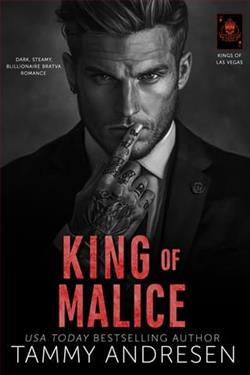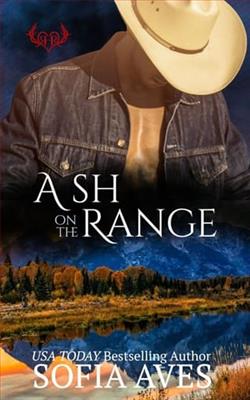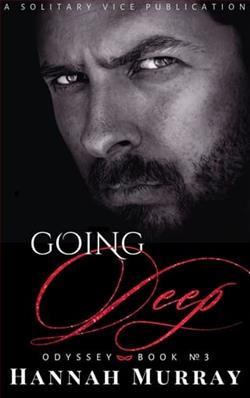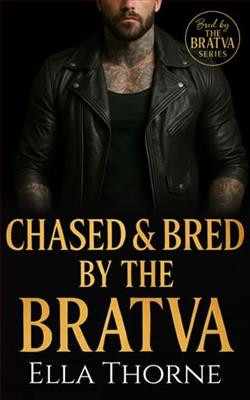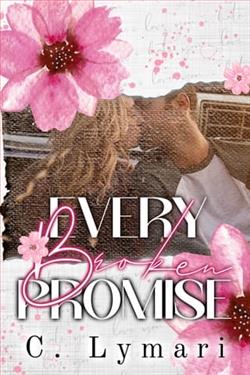Page 65 of The Road to Avalon
I turned away and walked back, dry eyed, toward the farm buildings to find Archfedd. I’d do my grieving with her, even if the tears wouldn’t come.
Chapter Twenty-Seven
Ididn’t sleepthat night. Archfedd, who’d cried herself into exhaustion, slept curled in her blankets beside me, but I sat up, staring into the flames of the campfire where it occupied the center of the farmyard. Sleeplessness seemed to have infected many of the men as well. Those not on watch sat in huddled silence, or tossed and turned in their blankets, and no comforting sounds of snoring lulled my unquiet soul.
My mind refused to let me rest. In a constant whirl, my thoughts tumbled inside my head, twisting amongst each other, tangled and wild. Images of Amhar as a baby, a toddler, then a child, brushed shoulders with him as an angry teen, and then of him fighting Llacheu, punching and kicking as though the devil drove him.
Their fight replayed itself inside my head countless times, as though my brain were nagging me that I was missing something. Time and again, I saw Llacheu’s body sprawled on the midden with the gaping gash in his throat grinning at me. I couldn’t clear my head of that horrific image, side-by-side with the one of Amhar lying on the farmhouse table.
Dawn dawdled in coming. As soon as the sun poked its golden nose over the eastern horizon, exhausted men chucked wood on the embers of the fire, someone threw the ingredients for porridge together, and the farmer’s family crept out of the barn where they’d spent the night.
Cei brought me a bowl of the porridge, but I waved him away, the smell of it making me nauseous, my head throbbing. I drank beaker after beaker of cool, clean water from the farmyard well, trying to wash away the parched aridity of my throat and failing.
Archfedd managed to eat a few mouthfuls of porridge. Llawfrodedd, ever attentive, stood over her and made sure she did. This morning she’d stopped crying, but despair had written itself across every part of her from her sad eyes and solemn mouth to her sagging shoulders. A girl of fifteen shouldn’t look like that, shouldn’t have experienced such horror.
Cei came to find me as the men were saddling up. I’d slipped away to stand behind the barn, my back pressed against the warm wood, and stare at the mound where my son lay forever sleeping. Two of the men had dragged a large rock up to the summit and were engaged in standing it upright on top of the grave.
“A memorial,” Cei said, making me jump. “They unearthed it when they were digging and thought it a good grave marker. Maybe whoever built that barrow put it there on purpose to honor their dead. It’s a stone of power. If you look closely, you’ll see there are a few holes right through it, as though roots have burrowed into the solid rock.”
Too small to see from where I stood. “On the Ridgeway, east of the Roman road, there’s a stone like that,” I said. “If you blow through it, the sound carries a long way. It’s called The Blowing Stone. It’s supposed to have powers.”
He nodded. “This one’s the same. I tested it when they asked me about setting it up. They’re calling it Llygad Amhar– the Eye of Amhar.”
A tiny memory jogged my fuddled brain.That name. Inside my head I heard my father’s voice. “Here, under this road, lies a mound called Licat Amr, lost when the road was widened. According to Nennius, it was one of themirabiliaof Britain, along with a dog print in a rock near Snowdon. The print of Arthur’s dog, Cabal.”
I’d remembered the dog print story and when Amhar had scrounged a hound pup of his own, I’d suggested he call it Cabal. Until now the other story had escaped me.
I shook my head to clear it. Where were we when he’d said that? Had my mother been there as well, before she died? I saw her slender, jean-clad legs and her T-shirt with Greenpeace emblazoned across it and her “Save the Whales” badge pinned to her chest, but couldn’t see her face. I heard her laughter as my brother raced away. Cars whizzed past on the road, but neither of my parents seemed to have noticed the danger to their offspring. My father had taken his tweed jacket off in the heat of the day, and I had a stone in my shoe.
I fought to clear the fog that wouldn’t let me see past the pain under my heel. What was my father saying? To my mother, not me. I was too small for him to think me interested. And that stone hurt, but both of them ignored my whining.
“The story is,” my father’s voice boomed back down the centuries to me, “that King Arthur killed his own son here and buried him under the mound– the tump– and if anyone tried to measure it, then every day it would be a different length.”
Realization dawned like the drenching of an icy shower. I’d stood here before in a long-ago life, by the grave of my own son, the story the only thing that remained of him by my time. Wait– the place had a funny name. I struggled to hear my father’s words as my brother climbed onto a five-barred gate and bounced up and down.
There. His words carried down the years, further than he’d ever have believed. “Wormelow Tump– a name of Saxon origin. Who knew what was here and what it was called when perhaps this Pendragon prince died?” My father chuckled, unknowing that the Pendragon Prince buried there had been his own grandson. “Or if any of it’s true.”
I was back in the present with Cei looking at me out of sad, sympathetic eyes. “Please forgive him, Gwen. He had to do it. He’s High King, and he couldn’t be seen to be treating his own son as above the law.”
I shook my head. “I don’t want to talk about it. Have you told him about Merlin and Morgana?”
He nodded. “We’re heading back that way today. I can’t tell how he’s going to treat it. I can’t tell what he’s thinking at all.” He swallowed. “But I wouldn’t like to be in Merlin’s shoes.”
I rounded on him. “Shewas behind all this. She blocked Merlin’s Sight so he couldn’t tell us Amhar was innocent. She said it was–” I ground to a halt. I’d promised Morgawse I wouldn’t believe it could have been Medraut, wouldn’t tell, even though now I thought it might have been. But maybe I was just desperate for it to have been him, to have someone other than Amhar to blame.
Sharper today than yesterday, Cei pounced. “What did she say? She told you someone else did it? Who? Tell me.”
“Nothing. She said nothing important.” Why was I protecting Morgawse and her son? Perhaps because I agreed with her on thinking Morgana had intended to sweep aside all other Pendragon heirs in favor of her own child. But that didn’t make Medraut completely innocent. Not by a long way.
Cei gave me a disbelieving look but didn’t press me. “I came to get you. We’re ready to leave. We have to return your strange mounts to the good people of Blestium unless you want to ride them all the way home and leave our prized cavalry horses to pull their carts.”
With one last long look at Amhar’s grave, I went with Cei.
*
We retrieved ourabandoned horses at Blestium, much to the relief of the inhabitants who’d looked after them like equine royalty from fear of retribution, and continued south to Caer Legeion. I kept away from Arthur and so did Archfedd, but he was still her father, and even though part of me felt glad she didn’t want anything to do with him, common sense told me she shouldn’t be encouraged. She rode close to Llawfrodedd all the way.
The day was drawing in as we clattered through the old legionary fortress between its roofless barracks and tumbledown walls and out into the town of Caer Legeion. Arthur called a halt outside Morgawse’s house, and when he and Cei dismounted, so did I. If I’d failed at defending my son, I refused to fail in the defense of my friend. Archfedd went to dismount but I waved her to remain where she was. “Stay with Llawfrodedd. That’s an order.”










